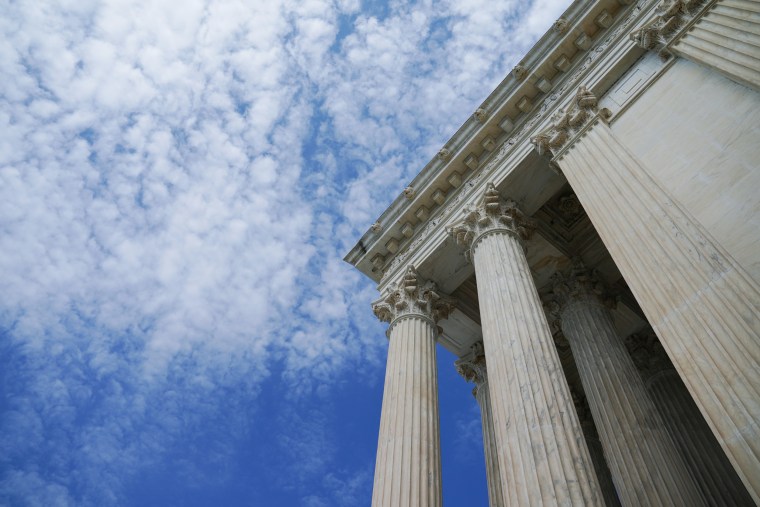WASHINGTON — With the justices separated by the coronavirus pandemic, the U.S. Supreme Court on Monday conducted its first-ever oral argument by telephone conference call, making history surprisingly smoothly.
It was a day of firsts — the first time the justices were not together for oral argument, with each of them calling in by phone. The first time the audio of the argument was available live, streamed on news websites and available on C-SPAN. And the first questions since March 2019 from Clarence Thomas — who often goes several years without asking any.
"Justice Thomas asking a question at oral argument now that it’s a more civilized questioning process," tweeted Carrie Sevarino, a former Thomas law clerk.
Despite the unprecedented nature of the argument, the court tried to observe as many of its traditions as possible.
Proceedings began precisely at 10 a.m. ET with the usual announcement by the marshal, Pamela Talkin, calling the court to order, although she left out the phrase about spectators being admonished "to draw near" and give their attention, since no one was in the marble courtroom.
Instead of the usual free-for-all, with justices jumping in at will, the questions started with the most senior member, Chief Justice John Roberts, and ended with the newest, Brett Kavanaugh. Roberts acted as master of ceremonies, calling on each justice and doing his best to hold them to three minutes each.
In the only minor hiccups, Roberts had to call Justice Sonia Sotomayor's name twice before she finally came on the line after a pause of 13 seconds.
"I'm sorry, Chief," she began, apparently having forgotten to unmute her phone. And during the second half of the argument, about 50 minutes in, the sound was distorted and nearly unintelligible during the first few seconds of Justice Stephen Breyer's question.
Cases scheduled for argument in March and April were postponed because of the pandemic. Roughly half of them are being heard in May. The rest were carried over to the next term beginning in the fall. Two of the biggest cases, involving access to President Donald Trump's taxes and the role of the electors who cast the actual vote for president, will be argued by conference call May 12 and 13.
The Supreme Court building has been closed to the public since March 12, but the court has continued to conduct business, issuing 18 decisions with most of the staff and many of the justices working from home.
In Monday's case, the court considered whether a company can get a federal trademark by tacking on the dot-com domain name to a common word. The Patent and Trademark Office denied a trademark to the hotel reservation site Booking.com. The justices seemed skeptical that such a generic name, followed by dot-com, can never be trademarked.
Neither the justices nor the attorneys said one word Monday about taking part in the first teleconference in Supreme Court history.
The first lawyer to speak during Monday's argument, defending the government's position, was Erica Ross from Solicitor General's office at the Justice Department, who said she planned to speak from a departmental conference room. Taking the side of Booking.com was Washington, D.C., lawyer Lisa Blatt, who planned to speak from a room at home.
Court officials said they conducted tests before Monday's argument, and that preparation paid off. When the justices spoke, the audio seemed to override the lawyers so that the questions took top priority, as they would during normal courtroom argument.
One issue in the background today was whether the justices will return to the courtroom when the new term begins Oct. 5. Six of the justices are 65 or older, considered to be at higher risk for bad outcomes if they contract the coronavirus.
Monday's argument went well beyond the normal one hour typically set aside for oral argument. At 11:16, Roberts said, "Thank you counsel, the case is submitted." The marshal sounded the gavel, and the history-making call was over.

